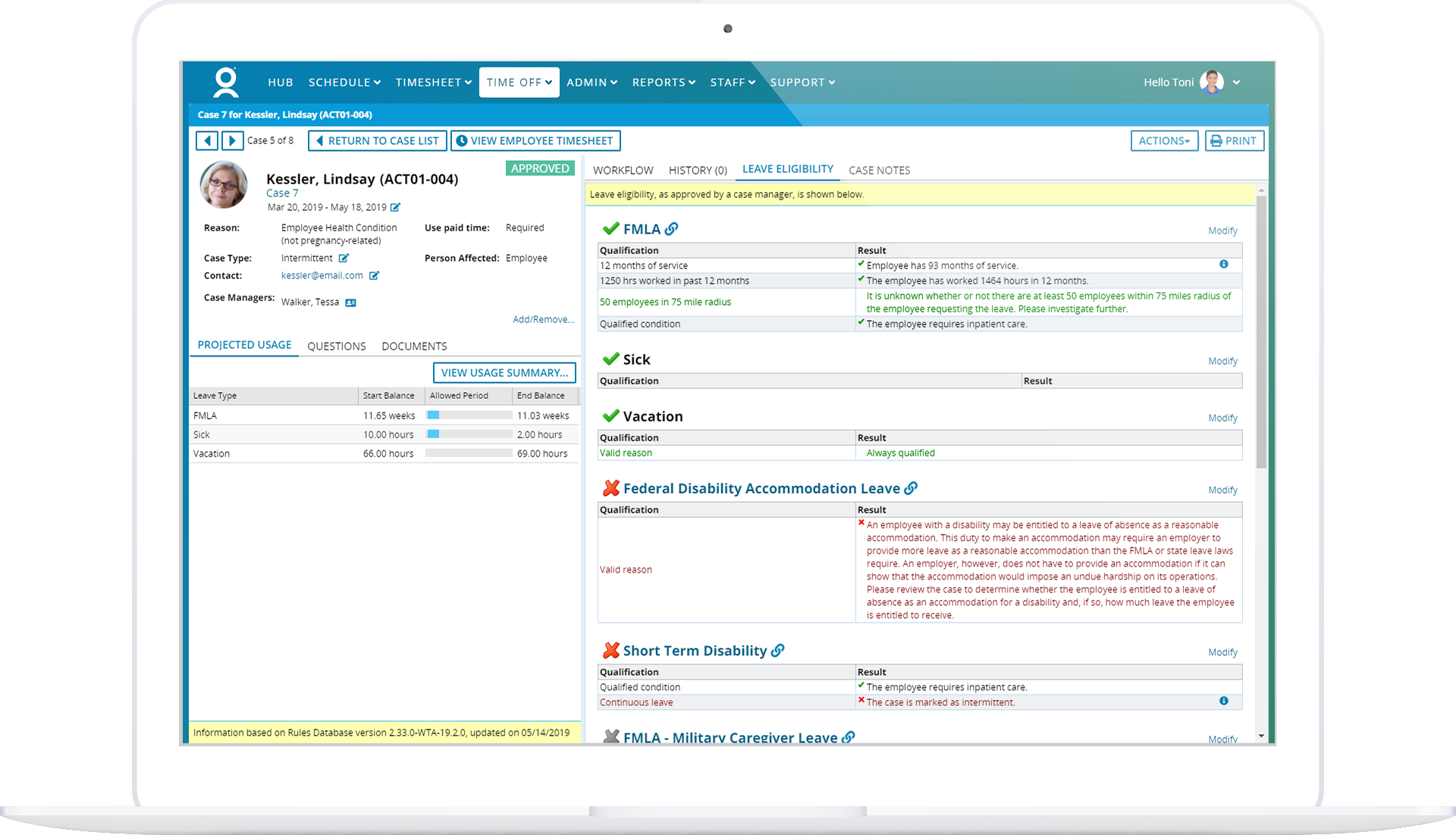Compliance Navigator
Shifting Away from COVID-19: Other Protected Leaves Available to Employees


Paul Kramer
Director of Compliance
Pregnancy leave
Any period of incapacity due to pregnancy is commonly a legally protected reason for leave under federal, state, and provincial law. Even if an employee has a normal pregnancy without complications, they may still occasionally need time off for prenatal care or morning sickness.
Bonding leave
Bonding leave, also known as parental leave, is a job protected absence for workers to care for a child following the child’s birth, adoption, or foster care placement. This type of leave may be taken by both mothers and fathers, but eligibility commonly expires within 12 months of the birth or placement.
Donation leave
Many jurisdictions have passed laws allowing employees to take time off from work to donate a body organ, bone marrow, or blood to another person. The purpose of these laws is to encourage people to make these vital donations while protecting their jobs. Because organ and bone marrow donation may require overnight hospitalization, it often qualifies as a serious health condition for purposes of family and medical leave.
Family Medical Leave
Federal, state, provincial, and local laws permit employees to take paid or unpaid leave for a defined time period for a variety of health conditions affecting themselves or covered family members.
Leave for victims of domestic violence, sexual violence, and interpersonal violence
A growing form of leave in the United States and Canada is time off for victims of domestic violence, sexual violence, and interpersonal violence. This leave may commonly be taken by employees if they or a covered family member, such as a child, are victims. To be eligible, employees must usually use the leave to seek medical attention, obtain services from a victim’s services organization, obtain psychological counseling, relocate, or seek law enforcement assistance.
Court leave
Employees are often entitled to job protected leave for service as a juror or witness, or if they must appear in court as the victim of a crime. The duration of this leave is usually for the length of time the worker is needed in court.
Military leave
Almost all federal, state, and provincial governments have passed laws allowing employees who are service members to return to their jobs after their military duty or when training is over, as long as proper procedures are followed.
Leave as a reasonable accommodation
While the Americans with Disabilities Act does not require any particular amount of leave, a short-term absence may be considered a reasonable accommodation for certain disabilities unless it creates an undue hardship for the employer. Leave as a reasonable accommodation may also apply to situations involving an employee’s pregnancy or sincerely held religious belief. In Canada, employers must also navigate through a variety of family status accommodation requirements.
Stay current with leave laws
The patchwork of different leave laws around Canada and the United States can create problems for employers who are either unaware of the leaves or who may have difficulty complying with them. All employers are well-served by ensuring that the appropriate Human Resource professionals in their organizations are properly trained and aware of these entitlements. It is also important for companies to stay current with the increasing number of new or amended leave laws to avoid the damages and costs associated with non-compliance.
Interested in learning how to maintain compliance beyond COVID-19 employment laws? Register to attend our live webinar on June 24th for a discussion on the new legislation that employers must be concerned about as their employees return to work.
Subscribe to The WorkForce Blog
Learn the art and science of maintaining productive, happy, engaged employees.
Discover More
Nucleus Insights from WorkForce Customers Research Note
Nucleus Research interviews WorkForce customers who validate why we’re ranked the #1 WFM enterprise vendor for 10 consecutive years.
Elevate Employee Experience: Checklist for Operational Leaders
Get the practical steps and technology functionalities operation leaders need to improve their employees’ work experiences.
Streamlining Complex Workforce Compliance Requirements Boosts Productivity
Discover how workforce compliance software helps EMEA organisations navigate complex legislation, enhance compliance and boost operational efficiency.




